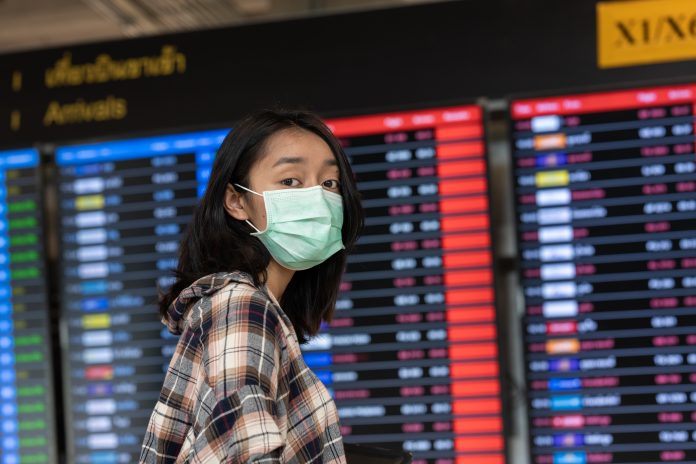The outgoing head of the Association of Asia-Pacific Airlines (AAPA) said Thursday (19 March) that the region’s aviation industry is facing a crisis like no other due to travel bans and border closures imposed because of the global COVID-19 coronavirus pandemic that has brought air travel throughout the world to a virtual halt. Governments around the world are starting to develop plans to pump billions of dollars into the aviation industry as the coronavirus races around the world, infecting more than 200,000 and killing almost 9,000 people.

“Asian airlines are facing revenue shortfalls of upwards of US$60 billion this year as a result of sharp falls in demand which have already forced the grounding of over half of the fleet,” AAPA Director General Andrew Herdman said in a statement. He also warned that many of the one million workers employed in the Asia-Pacific airline industry are unable to work because of the drastic reductions in operations are facing the threat of a loss of their livelihoods.
- Coronavirus: Travel restrictions, border shutdowns by country
- Coronavirus: Air India pilots seek urgent financial aid
- Hong Kong airport pax traffic falls 68% in February
- China’s air traffic plunged in February
- CORONAVIRUS: IATA takes subtle swipe at Trump’s travel restrictions
- CORONAVIRUS: AAPA calls for travel bans to be lifted as Trump axes all travel from mainland Europe
- ACI World warns airports will see steep decline in pax traffic and revenues
- IATA: “Extended scenario” for coronavirus could see US$113 billion wiped off airline revenues globally
Herdman also warned sharp reductions in passenger services have reduced available air cargo capacity affecting critical supply chains, including getting food and medical supplies to affected communities worldwide. Asian airlines are continuing to operate dedicated freighter services but need help in streamlining operations, scheduling, and crew clearances to keep critical goods moving as a lifeline.
The World Health Organisation (WHO) is providing strong leadership in coordinating the global public health response, and notes that this is the first pandemic “we can control if all countries and sectors come together. Similarly, we believe that it is time to consider holistic global measures to pave the way for the aviation industry to survive this crisis. Such a global approach is necessary to manage the economic and social impact of the COVID-19 pandemic”.
Herdman said the association, which represents major Asian airlines, is urging governments to help the airlines get additional financing from banks and financial institutions. He also said governments could help by:
- Suspending payroll taxes, defer or reduce income taxes, extend payment terms, waive ticket taxes and other government levies, taxes, dues and charges for 2020;
- Direct financial support for reduced revenues and liquidity support due to travel restrictions;
- Extend interest-free loans or loan guarantees, and support for corporate bond markets either directly or to commercial banks to extend credit for affected companies;
- Direct financial support for individuals facing loss of livelihoods.
Aid packages being discussed
Countries including India, New Zealand, the United States and others have started to come up with ways to support the aviation industry as many airlines teeter on the brink of bankruptcy. The head of the International Air Transport Association (IATA) said Tuesday (17 March) that airlines around the world may need as much as US$200 billion in government aid to survive the COVID-19 coronavirus pandemic. Showing the limits of working remotely as governments around the world are recommending, IATA Director General Alexandre de Juniac spoke to reporters in a conference call marked by technical glitches. In the call, de Juniac said “time is of the essence. Governments cannot take a wait-and-see approach. We have seen how dramatically the situation has deteriorated globally in a very short time. They must act now and decisively.” (To listen to a recording of the media conference call, click here.)
IATA said this week that airlines are facing a “liquidity crisis” and in many cases have only two to three months of cash to fund their operations. The CAPA Centre for Aviation also said recently that “most airlines” face going bankrupt by May – or are already technically insolvent – if governments don’t act.
The government of India is planning a rescue package worth as much as US$1.6 billion, according to media reports from Delhi. The Finance Ministry is considering a proposal that includes temporary suspension of most taxes levied on the sector, including a deferment of aviation fuel tax. The CAPA Centre for Aviation’s India unit released a report on the effects of the virus on the industry there. (To download the report, click here.)

Australia and Taiwan joined governments offering financial aid to airlines. The Australian government said it would refund and waive charges to airlines such as domestic air traffic control fees worth A$715 million (US$397 million) as it advised citizens against all foreign travel. Taiwan’s civil aviation regulator said that its airlines could apply for subsidies and loans backdated to 15 January. Australia’s move comes as Qantas said it and its Jetstar unit would suspend all international flights and furlough up to two-thirds of the group’s workforce.

The Victoria Tourism Industry Council (VTIC) in Australia said it applauded the aid package for the country with VTIC Chief Executive Felicia Mariani saying “this support package is absolutely vital in supporting our Australian carriers to stay afloat in the current unfolding crisis. The aviation industry, along with the broader tourism, travel and events sectors have been slammed since the first of February with the rolling restrictions and bans on international travel. This has subsequently also seen our domestic visitation shrink to levels never seen before,” she added. “Aviation is the backbone of commerce and trade. The critical role it plays in our economic fabric stretches well beyond leisure visitation. We need to do everything we can to support their ability to weather this current crisis and emerge on the other end in a solid position to support the nation’s recovery and growth into the future.”

In the United States, airlines have asked Washington for US$50 billion in grants and loans, plus tens of billions of dollars in tax relief. Troubled plane maker Boeing has called on the US government to provide at least US$60 billion in access to liquidity, including loan guarantees, for the aerospace manufacturing industry as airlines halt deliveries and new orders to conserve cash. Airbus has also signalled that some government support may be needed if the coronavirus crisis lasts for several months. Sweden and Denmark on Tuesday announced US$300 million in loan guarantees for Scandinavian carrier SAS.
New Zealand’s government announced Thursday (19 March) that it would help the industry with a US$332 million relief package. The trade group representing the country’s airports, NZ Airports, said the deal was a good first step. NZ Airports CEO Kevin Ward said the package shows the government is acting early to help reduce the significant impacts on aviation of the COVID-19 pandemic.
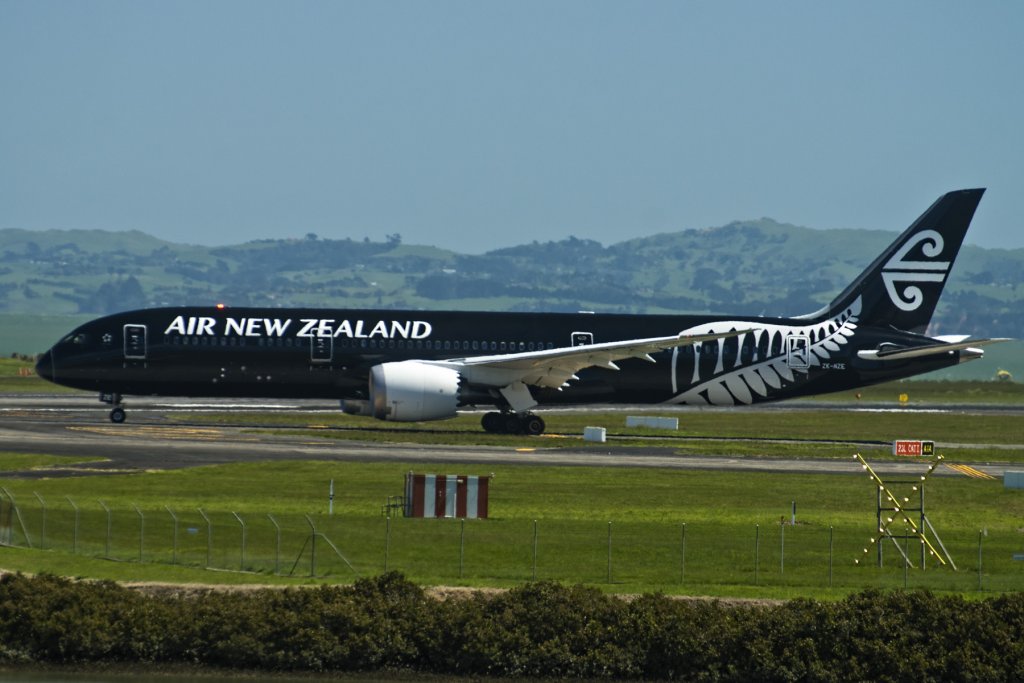
“The funding support for Airways, New Zealand’s air navigation service provider, is particularly vital as it is an important partner in the overall aviation system. Airways is in the same situation as airports with its revenue dependent on the number of flights,” Ward said. “We see this as a good first step – but we are going to need more measures to maintain core airport infrastructure and capability. We are being hit hard, along with other sectors. The connectivity and national reach of our aviation system needs protecting, and in turn the economic and social links that depend on air travel. The wider airport community is communicating regularly and working together.”
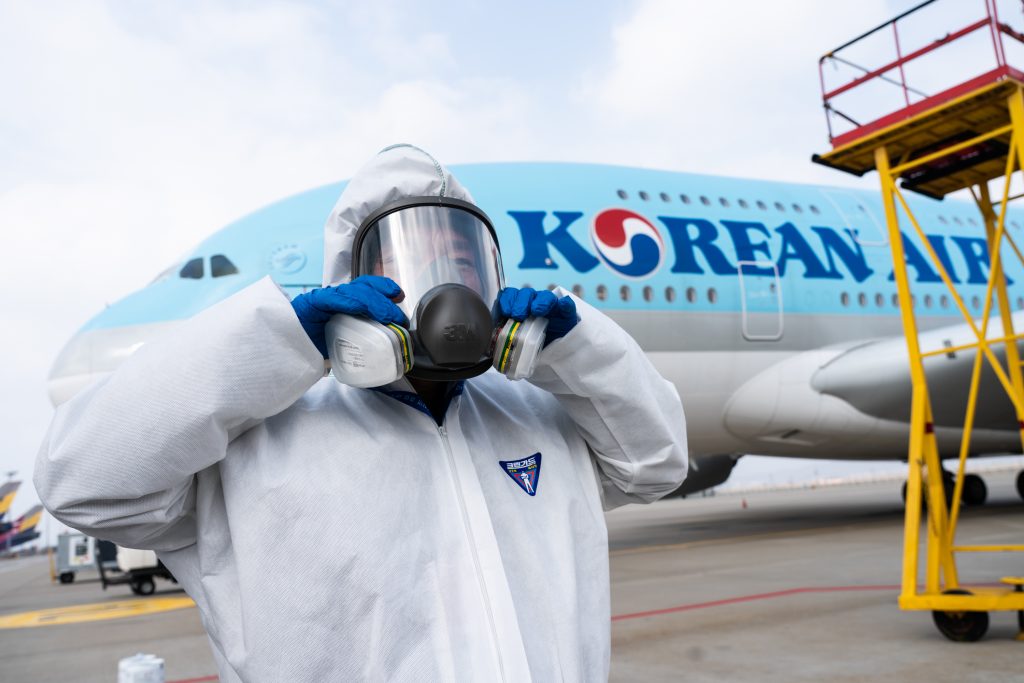
South Korea’s government has also stepped in to help the industry. The country’s Ministry of Land, Infrastructure and Transport (MOLIT) will provide domestic airlines with US$52 million worth of airport usage fees and allow later payments for US$399 million worth of charges. In addition, according to a CAPA Centre for Aviation report, the ministry will do the following:
- The ministry will not reclaim unused traffic rights and slots as airlines continue to cut capacity due to travel restrictions placed by several countries. As of 17 March, 150 countries and territories imposed restrictions on travellers from South Korea;
- Airport facility fees will be discounted;
- Due to the increasing number of aircraft being parked at airports, the ministry will exempt airlines from parking fees for three months starting from March;
- Air navigation charges: Aircraft operating in Korea’s airspace will be exempt from charges for three months from April;
- Landing charges: Reduced by up to 20 percent for two months from March. Previously, a reduction in landing charges was scheduled to come into effect from June;
- Ground operators: 20 percent discount and deferred payment for three months;
- Airport ancillary services: Inflight meals and refuelling payment will be deferred by three months from March.
Airports in the US are also asking for US$10 billion in assistance. Airports Council International – North America (ACI-NA) and the American Association of Airport Executives (AAAE) urged in a letter to House and Senate leadership, for the assistance. ACI-NA President and CEO Kevin Burke and AAAE President and CEO Todd Hauptli explained the dire situation airports are facing and requested the US$10 billion in immediate assistance to deal with the COVID-19 crisis.
“For airports, we are seeking US$10 billion in immediate assistance to flow through the existing FAA Airport Improvement Programme with expanded eligibility to meet airports’ most immediate needs,” Burke and Hauptli wrote. “To be clear, a rapid infusion of cash grants to airports must be in any immediate plan considered by Congress.”
Additionally, the letter highlights AAAE and ACI-NA’s strong support of efforts to provide airlines with immediate assistance.
“It is imperative that special attention be given to the aviation industry, given its profound impact on the national economy and the devastating impacts the coronavirus will have on airlines, airports, and the myriad businesses that operate at airports across the country,” Burke and Hauptli note. “The aviation system is highly interdependent, so any effort to provide relief must include airports, airlines, and the businesses that rely on them.”
ACI World calls for global policy response
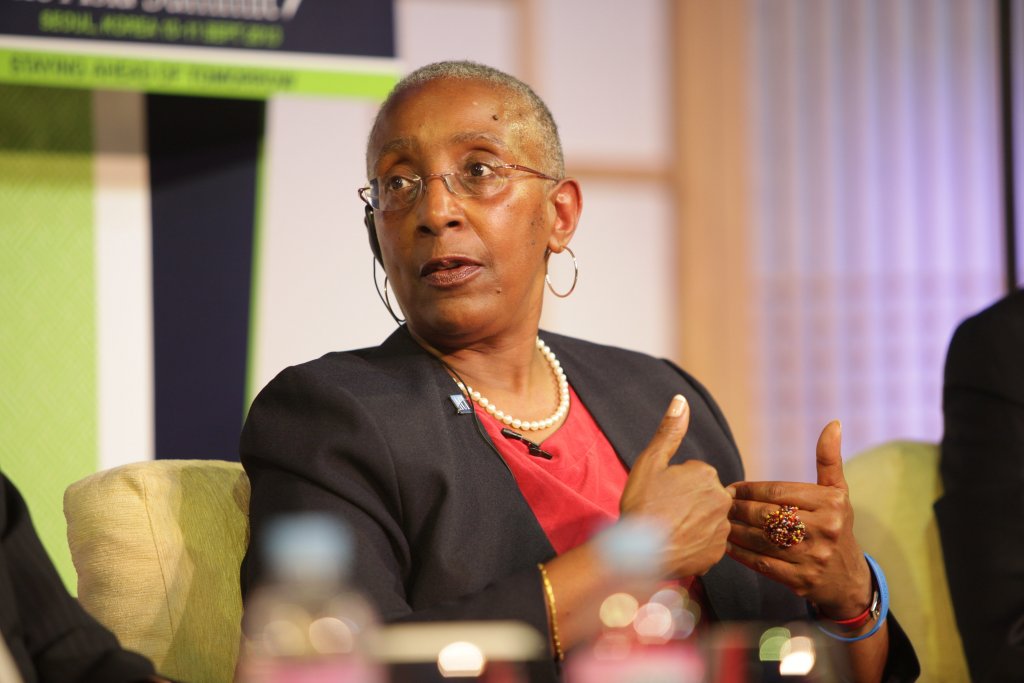
The umbrella organisation representing the world’s airports, ACI World, has called on governments around the world to work together to develop a coordinated response to the COVID-19 virus. ACI World Director General Angela Gittens said while airport operators remain first and foremost concerned with protecting the health and welfare of travellers, it is important to note that they are also businesses in their own right. They have significant costs to bear, debts and obligations to fulfil, and services to deliver, even during a time of crisis and said airport industry losses of at least US$20 billion to US$25 billion could be expected this year.
“There is a general sense across the aviation community that we are all in this together as this crisis continues to unfold,” ACI World Director General Angela Gittens said. “As the economic policy response is formulated, however, it is important to note that no measure or relief package should disproportionately benefit one sector at the expense of another. We should seek to ensure the impact of the COVID-19 pandemic on the aviation ecosystem is borne equitably and that all solutions are fair and reasonable so as to give the industry the greatest chance to recover quickly.”
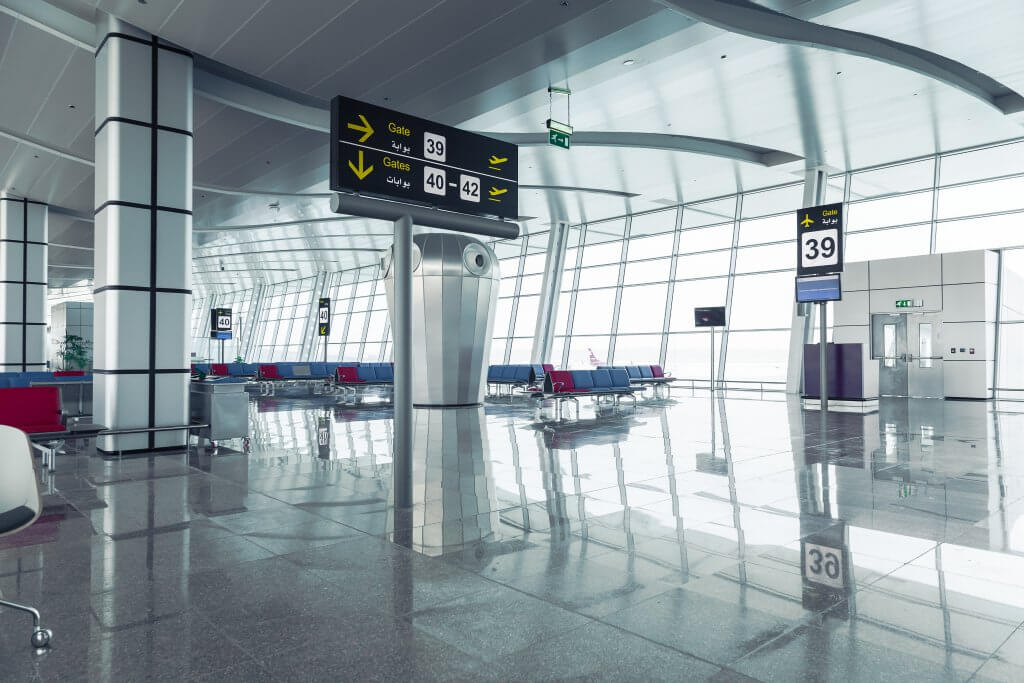
ACI World recommended the following policy measures in order to alleviate the shortfall for airports:
- Protection of airport revenues: Airports are reliant on revenue from charges on airlines and passengers and from commercial activities (which play a key role to bridge the gap between airport costs and aeronautical revenue). Any global alleviation of airport charges or introduction of blanket discounts, therefore, will place airport operators in greater financial distress.
- Alleviation of airport slots usage requirements: The temporary suspension of airport slot usage requirements would enable carriers to adjust their schedules in a sustainable way and for airports to protect connecting traffic at hub airports and help safeguard connectivity worldwide. ACI favours an ongoing flexible reassessment of the situation based on data-driven evidence.
- Concession fee payments to governments: Governments need to consider, on a case-by-case basis, waiving airport rents and concession fees applicable to airport operators, irrespective of their ownership status, given the financial stress they are experiencing.
- Tax relief for the aviation sector: ACI World believes that national authorities have now a key role to play to ensure the sustainability of the entire aviation ecosystem by granting relief on airport taxes, on passenger-based taxes, and on taxes on air transport in general to incentivise the return of passenger confidence to travel.
- Government assistance: In some circumstances, seeking government assistance to help offset losses incurred by the sharp drop in travel due to the continuing outbreak can be an appropriate measure.
“These policy responses aim to ensure the continuity and sustainability of airport operations in these exceptional circumstances,” Gittens said. “The aviation industry and governments should approach the prospects for recovery strategically, pragmatically, and in partnership.”
ICAO urges standards cargo and pax screening
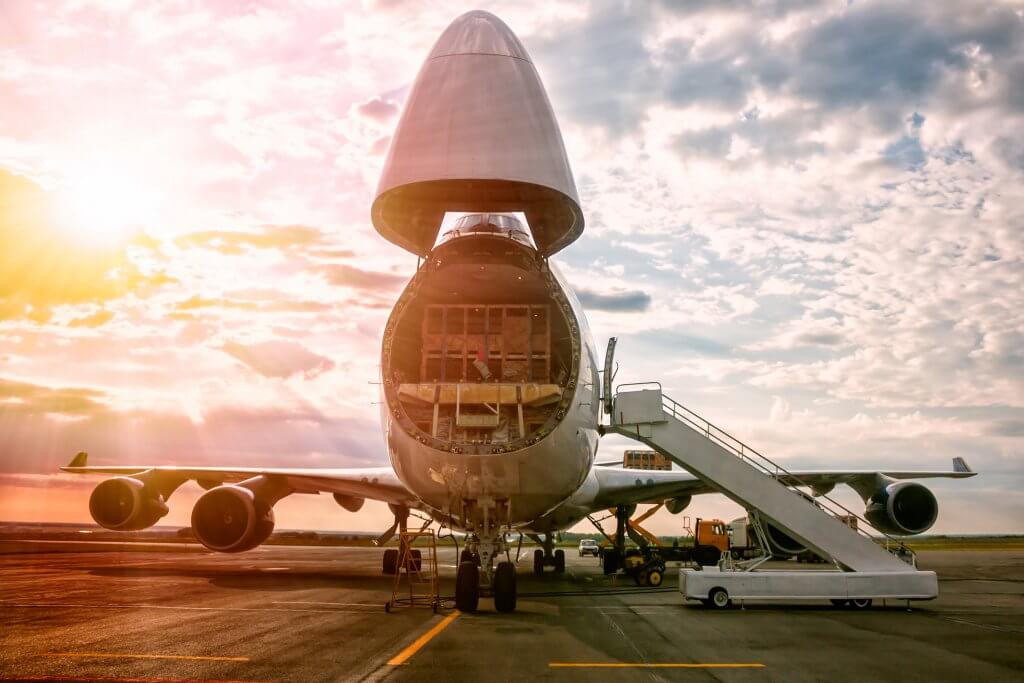
The UN’s International Civil Aviation Organisation (ICAO) issued a call to national governments to establish or adhere to several key international requirements contained in Annex 9 to the Convention on International Civil Aviation, and relating primarily to the movement and health related screening of passengers and goods. States were strongly urged in the ICAO State Letter to coordinate between aviation and health authorities and to establish National Facilitation Committees. The ICAO also urged governments to adhere to ICAO Annex 9 standards relevant to sustainable air freight operations and the global air cargo supply chain, and to refer to specific Annex 9 guidance and other ICAO guidance manuals concerning additional measures to be applied in a health emergency, including screening.
The ICAO Annex 9 standards to expedite the release and clearance of goods carried by air include a focus on the use of modern screening techniques for examination of goods, and others which importantly apply to the entry, departure, and transit of aircraft engaged in relief flights. States in this context were reminded by ICAO to implement measures to facilitate the receipt of aid, including through the provision of overflight and landing rights and the necessary privileges and immunities for relief units, in an effort to avoid disruption.
“I have been pleased to note that several States have implemented measures to prevent disruptions to such critical operations, by maintaining all cargo flights and excluding crew members of cargo flights from quarantine,” noted ICAO Secretary General Dr Fang Liu. “There is an urgent need to ensure the sustainability of the global air cargo supply chain and to maintain the availability of critical medications and equipment such as ventilators, masks, and other health and hygiene items which will help reduce the spread of COVID-19.”
IATA faults EU on compensation decision
IATA and Airlines for Europe (A4E), said they were disappointed in a recent decision by the European Commission on new guidelines on the application of the EU261 passenger rights regime. The new guidelines are disappointing and unhelpful, the two groups said, falling far short of the simple and temporary alleviation airlines had requested for:
- Recognition that no compensation is due in the event of cancellations due to COVID-19;
- A limitation on the extensive obligations to provide care and assistance in the event of cancellations due to COVID-19;
- Flexibility to allow airlines to offer rebooking or vouchers in place of refunds in the event of cancellations due to the pandemic.
There was some limited help in the new guidelines. They recognised that cancellations caused by externally imposed measures (such as the flight bans) or because of the very low demand are to be considered as an extraordinary circumstance. This would mean that in most current cases compensation for cancellation will not apply.
However, on the limitations on providing care and assistance due to COVID-19, and particularly the flexibility on refunds or vouchers, the commission’s response is inadequate, the groups said. “No flexibility on the limitation of obligations was offered during a period of crisis for the aviation industry. This means that airlines are potentially responsible for unlimited care to passengers who have been stranded as a result of government decisions to close borders.

“The commission appears to considerably underestimate the crisis afflicting airlines in Europe. Faced with a cashflow catastrophe, many airlines can only offer vouchers in lieu of immediate cash refunds for cancelled flights. The commission must accept that this solution – which many people would regard as reasonable in the current extraordinary circumstances – should be facilitated. The commission needs to understand that fiddling at the edges will not keep airlines in any shape to get the economy moving again when the health crisis abates. This is not a short-term issue—air connectivity will not be back to normal for many months. And for some airlines, things will never be the same again,” said Rafael Schvartzman, IATA’s regional vice president for Europe.



